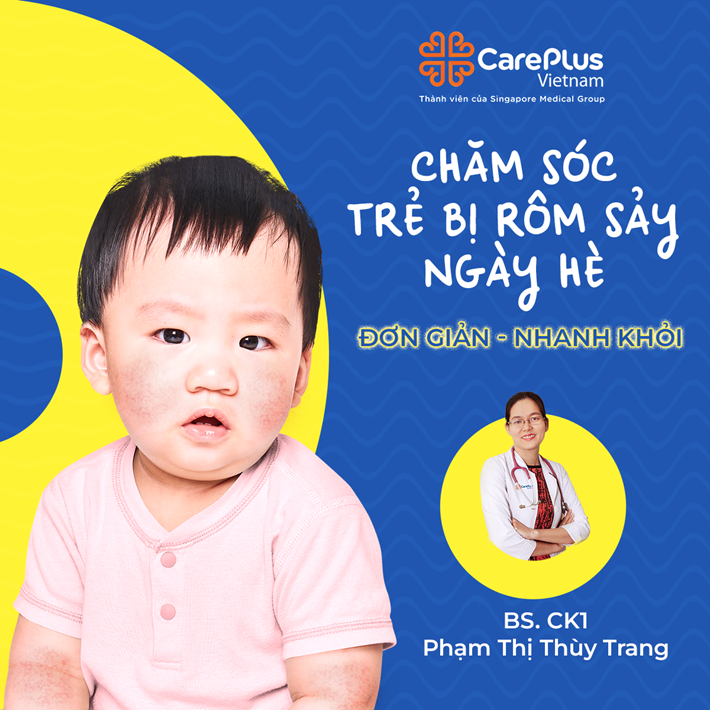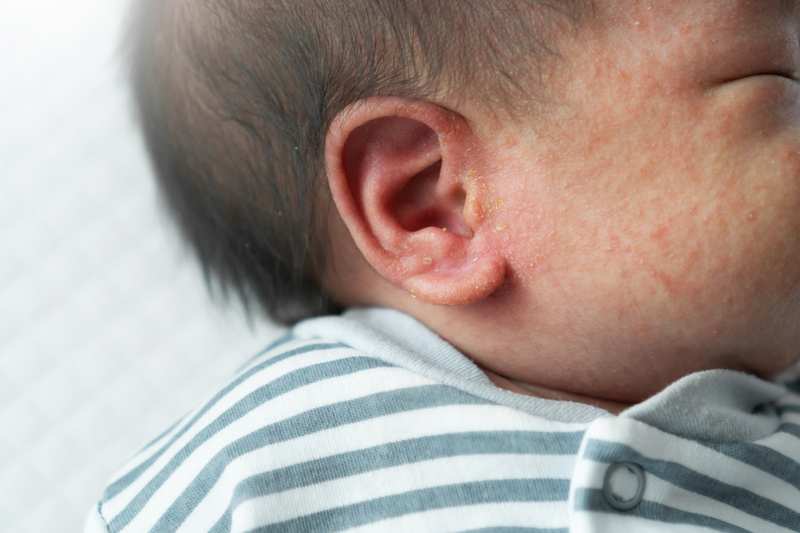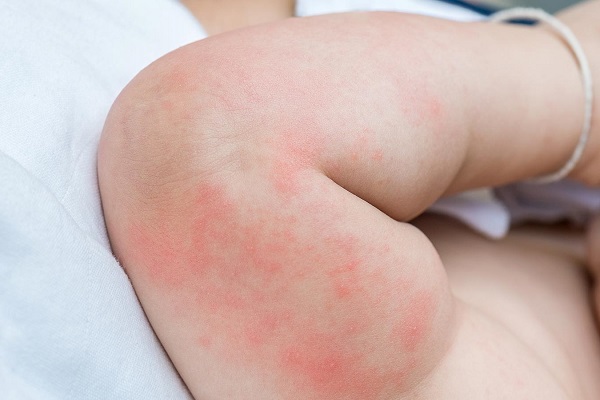How to treat heat rash in babies
Heat rash normally goes away without treatment. However, there are medicines available from a pharmacy to ease the symptoms of itching. These include calamine lotion (which helps ease itching) and antihistamine medicines. Your pharmacist may recommend a low-strength hydrocortisone cream, which is a type of steroid cream used to treat inflammation.

4/6/2023 1:45:50 PM
What is heat rash?
Heat rash — sometimes called prickly heat, sweat rash or miliaria, is a harmless but very itchy skin rash. It causes small red spots in places where sweat collects, such as the armpits, back, under the breasts, chest, groin, elbow creases and back of the knees, and the waist.
It happens when the body sweats more than usual, and is more common during summer months or in a hot climate.
What are the symptoms of heat rash?
Heat rash causes:
-
tiny red spots or clear blisters. In babies, these are often in the skin folds, on the face or in the nappy area
-
an irritating itch and prickling sensation
-
redness and mild swelling of the affected area
Symptoms of heat rash last 2 to 3 days.

What causes heat rash?
Heat rash is caused by a blockage and inflammation of sweat ducts in heat and high humidity.
It is common in newborn babies as their sweat glands haven’t developed properly yet. It can also happen in older children.
When should I see my doctor?
If the area becomes infected, you or your child may need antibiotics. See your doctor if:
-
the blisters fill with pus
-
the area is getting red and swollen, or feels warm
-
the rash lasts more than 3 days
-
you or your child are unwell or have a fever
-
you or your child have swollen lymph nodes
How is heat rash diagnosed?
Your doctor will diagnose heat rash by looking at the rash. They may take a swab to rule out an infection.

How is heat rash treated?
Heat rash normally goes away without treatment. However, there are medicines available from a pharmacy to ease the symptoms of itching. These include calamine lotion (which helps ease itching) and antihistamine medicines. Your pharmacist may recommend a low-strength hydrocortisone cream, which is a type of steroid cream used to treat inflammation.
Speak to your pharmacist for further advice and to make sure any medicines you take are suitable for you.
You may need antibiotics if the area becomes infected.
If you’re experiencing heat rash, here are some things that may help:
-
Cool down to avoid sweating. Try to avoid heat and humidity; stay in air conditioning or near a fan, and make sure there is good ventilation.
-
Keep the skin dry.
-
Try to wear loose cotton clothing which can help prevent you overheating and making the itch worse. Avoid fabrics which irritate your skin, like wool or scratchy fabrics.
-
A cool bath or shower may help provide short-term relief from any itching, but excessive showering or bathing should be avoided as this can reduce the natural oils that protect the skin and may make it worse.
How to treat heat rash in babies and children
If your child has a heat rash, try to keep them cool and dry. Dress them in light cotton clothing and avoid too many layers when you dress them.
You can help to ease the itching with a lukewarm bath, though avoid using soap as this can make the skin irritation worse. You can also press a cool, damp cloth on the spots for relief.
You can talk to your doctor or pharmacist about ways to stop your child scratching, such as by using calamine lotion or corticosteroid cream. This will avoid the spots getting infected.
Change sweaty clothes and wet nappies regularly. Make sure you dry in their skin folds after a bath and avoid using a plastic mattress.